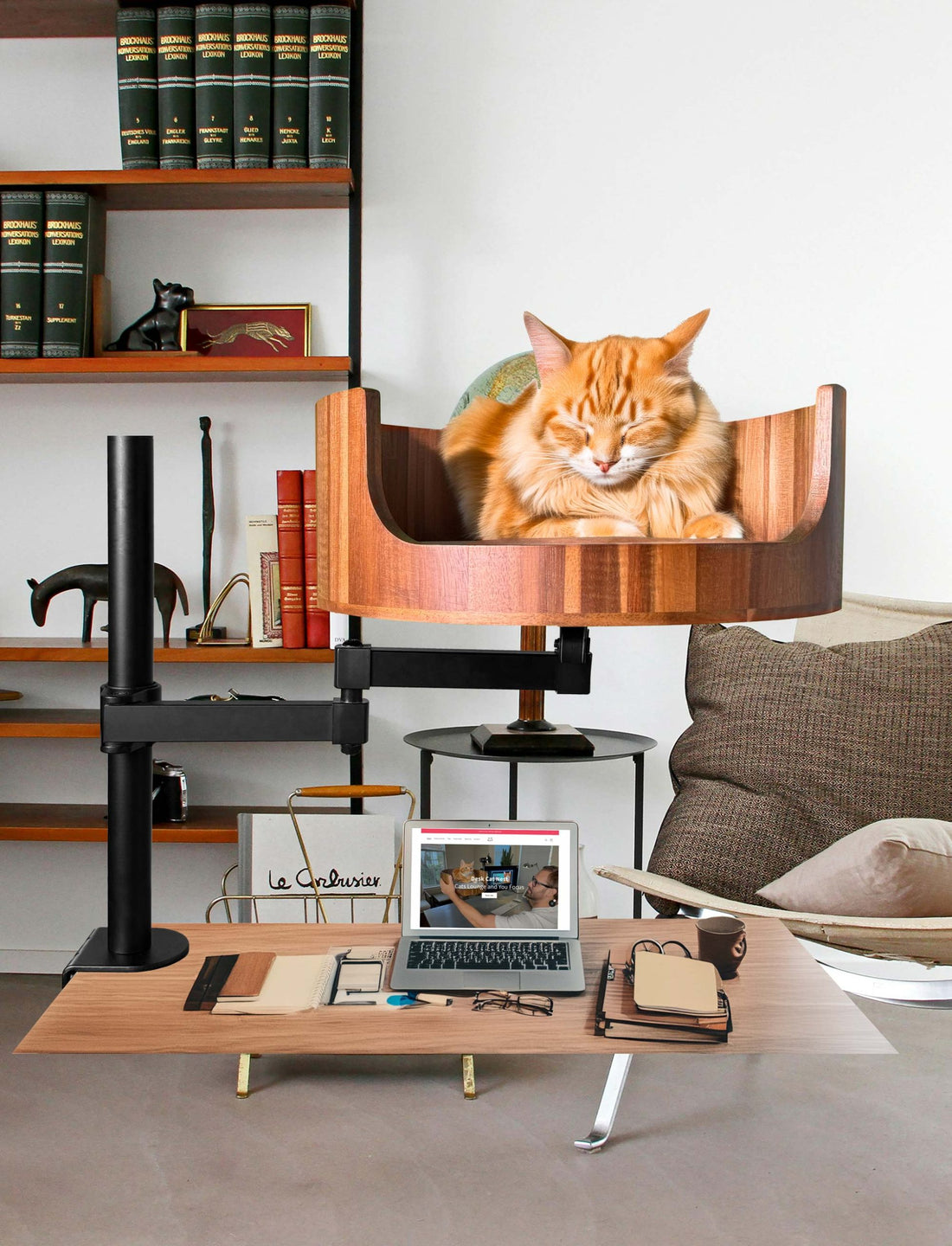
Why is my cat growling at me? Understanding Feline Behavior
Share
Do you find yourself puzzled when your beloved feline friend starts growling at you for no apparent reason? Understanding why cats exhibit this behavior can be key to maintaining a happy and healthy relationship with your pet. In this article, we will delve into the reasons behind why your cat may be growling at you and how to interpret and manage this behavior effectively.
Cats growl for a variety of reasons, ranging from fear and discomfort to territorial aggression. By understanding these underlying motivations, cat owners can better navigate and address their pet's needs. Additionally, recognizing the body language cues that accompany growling can provide insight into your cat's emotional state and help prevent potential conflicts. Stay tuned as we explore the complexities of feline behavior and provide tips on how to create a harmonious environment for you and your furry companion.
1. Cat growling is a sign of fear, discomfort, or aggression, and it is important to understand the underlying cause.
2. Cats may growl due to pain, stress, or territorial behavior, so it is crucial to observe their body language and context.
3. Respect your cat's boundaries and give them space when they are growling to avoid escalating the situation.
4. Provide a safe and comfortable environment for your cat to reduce stress and prevent growling episodes.
5. Consulting with a veterinarian or a feline behavior specialist can help address any underlying issues causing your cat to growl.
Understanding Feline Behavior
Cats are complex creatures with a wide range of behaviors that can be puzzling to their human companions. Understanding feline behavior is crucial to building a strong bond with your cat and providing them with the best care possible.
Reasons for Growling
Growling is a form of communication for cats, and it can signal a variety of emotions or intentions. Common reasons for a cat to growl include fear, pain, aggression, or territorial behavior. It is essential to pay attention to the context in which your cat is growling to determine the underlying cause.
Fear and Anxiety
Fear and anxiety can often manifest in growling behavior in cats. Your cat may feel threatened by a new person, pet, or environment, leading them to growl as a warning. It is important to create a safe and secure environment for your cat to help alleviate their fears and reduce growling behavior.
Pain and Health Issues
If your cat is suddenly growling at you, it may be a sign of pain or discomfort. Cats are masters at hiding their pain, so it is essential to pay attention to any changes in behavior, including growling. A visit to the vet may be necessary to rule out any medical issues causing your cat's behavior.
Aggression and Territorial Behavior
Growling can also be a sign of aggression or territorial behavior in cats. Your cat may be growling to establish boundaries or defend their territory from perceived threats. Understanding your cat's triggers and providing them with appropriate outlets for their energy can help reduce aggressive behavior.
Training and Socialization
Proper training and socialization can play a significant role in curbing growling behavior in cats. Positive reinforcement techniques can help encourage desirable behaviors while discouraging growling. Additionally, providing your cat with opportunities to socialize with other animals and humans can help reduce fear and aggression.
Frequently Asked Questions
Why is my cat growling at me?
Growling in cats can be a defensive or aggressive behavior. Cats may growl when they feel threatened, scared, cornered, or simply to establish their dominance. It's important to observe your cat's body language and the situation in which the growling occurs to determine the cause.
Will a Desk Cat Nest help with my cat's growling?
A Desk Cat Nest can provide your cat with a safe and comfortable space to retreat to when they feel stressed or anxious. Giving your cat their own territory can help reduce feelings of insecurity that may lead to growling behavior.
How can I use a Desk Cat Nest to address my cat's growling?
Encourage your cat to use the Desk Cat Nest by placing treats, toys, or a familiar blanket inside. Allow your cat to explore the nest at their own pace and provide positive reinforcement when they use it. Make sure the nest is placed in a quiet and peaceful area of your home where your cat can relax undisturbed.
Are there other techniques I can use to stop my cat from growling?
In addition to providing a safe space like a Desk Cat Nest, you can try to identify and address the underlying cause of your cat's growling. Make sure your cat has access to food, water, litter, and a scratching post. Provide mental and physical stimulation through playtime and interactive toys. Consider consulting with a veterinarian or animal behaviorist for further guidance.
In conclusion, providing your cat with a comfortable and secure space, such as the Desk Cat Bed, can greatly reduce their stress levels and aggressive behaviors like growling. This calming sanctuary offers a safe retreat for your feline friend, allowing them to relax and feel secure. The raised edges and cozy interior of the Desk Cat Bed create a sense of protection and comfort, ultimately fostering a stronger bond between you and your cat. Investing in a Desk Cat Bed is a valuable choice that can greatly benefit both you and your furry companion.



















































